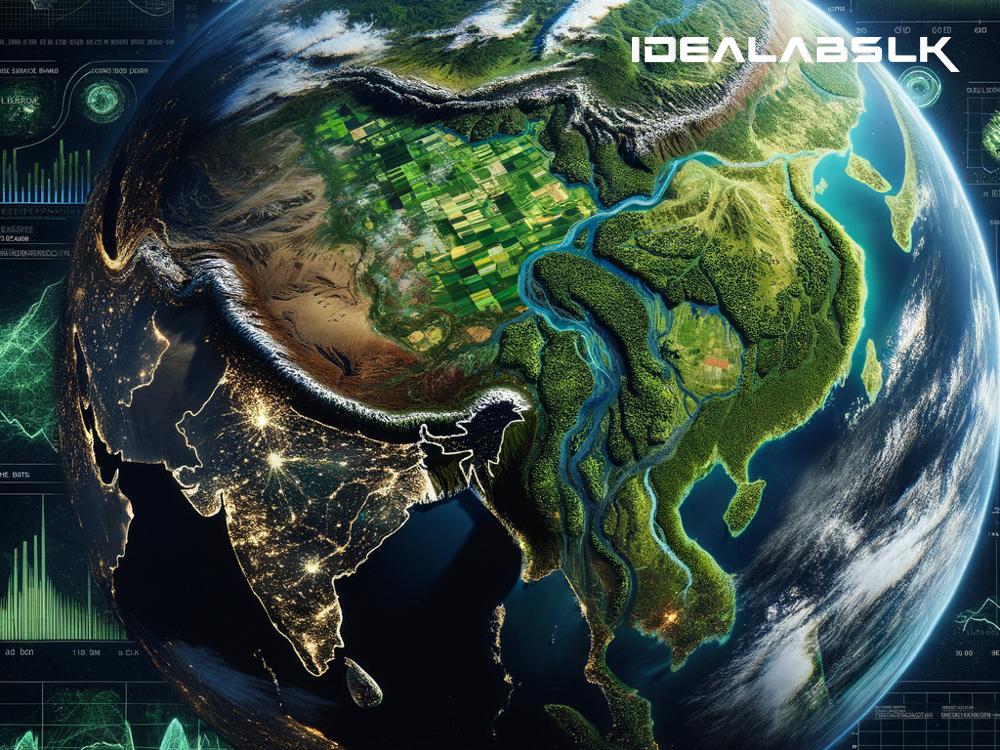Unlocking the Future: The Potential of Space-Based Data in Managing Earth's Natural Resources by 2024
As we stand on the brink of 2024, it's impossible not to marvel at how far humanity has come in harnessing technology. In this journey, space-based data has emerged as a game-changer, particularly in the way we manage our planet's natural resources. This might sound like something out of a sci-fi movie, but it's our reality, and the possibilities it opens up are truly out of this world.
Imagine satellites orbiting Earth, not just as silent spectators, but as powerful tools that help us unlock the secrets of managing our natural resources more effectively. They're up there, right now, gathering crucial information that could alter how we deal with everything from water scarcity to managing our forests. Here's a look at how space-based data can revolutionize our approach by 2024.
1. Water Management
Water is the lifeblood of our planet, but it's a resource that's becoming increasingly scarce. Thanks to satellites, we can now monitor water levels in rivers, lakes, and reservoirs across the globe more accurately. This isn't just about knowing how much water is available; it's about predicting droughts and floods, ensuring we can allocate water resources more effectively, and securing our future water needs. By 2024, advances in satellite technologies could enable us to manage our water resources with unprecedented precision, potentially averting crises before they happen.
2. Agriculture and Food Security
Food is another crucial resource, and as our population grows, ensuring everyone has enough to eat is becoming increasingly challenging. Space-based data is set to change this. Satellites equipped with special sensors can monitor crop health, soil moisture levels, and even predict potential harvest yields. This information can help farmers make informed decisions, reduce waste, and increase productivity. By 2024, the use of satellite data in agriculture could help us take significant strides towards achieving global food security, making famine a thing of the past.
3. Forest Management
Forests are the lungs of our planet, yet they're disappearing at an alarming rate. Monitoring vast areas of forests from the ground is a mammoth task, but from space, it's a different story. Satellites can provide real-time data on deforestation, forest health, and even help detect illegal logging activities. This kind of information is vital for conservation efforts and ensuring sustainable management of our forests. By 2024, space-based data could become a cornerstone in our fight against deforestation, helping us preserve these vital ecosystems for future generations.
4. Disaster Response and Preparedness
Natural disasters can have devastating effects, but space-based data offers new hope in mitigating these impacts. Satellites can monitor weather patterns, track hurricanes or typhoons, and even detect early signs of volcanic eruptions. This information is crucial for disaster preparedness, allowing for timely evacuations and reducing potential damage. As we head into 2024, the ability to predict and respond to natural disasters using space-based data could save countless lives and significantly reduce economic losses.
5. Climate Change Monitoring
Perhaps one of the most critical applications of space-based data is in the fight against climate change. Satellites play a crucial role in monitoring greenhouse gas emissions, melting ice caps, and changes in sea levels. This data is vital for understanding the impact of climate change and is essential for informing policy and decision-making. As we approach 2024, leveraging space-based data for climate action is not just an option; it's a necessity if we hope to safeguard our planet for future generations.
In Conclusion
The potential of space-based data in managing Earth's natural resources by 2024 is nothing short of revolutionary. As we harness the power of this technology, we unlock new possibilities in addressing some of the most pressing challenges facing our planet. Whether it's ensuring water and food security, preserving our forests, responding to natural disasters, or tackling climate change, space-based data is set to play a pivotal role.
As we look to the future, it's clear that the final frontier might just hold the key to protecting and preserving our home planet. The journey ahead is filled with promise, and by leveraging the power of space-based data, we can envision a world where natural resources are managed sustainably and efficiently, ensuring a prosperous future for all. The year 2024 could mark a turning point in this quest, setting us on a path towards a more resilient and sustainable planet.

